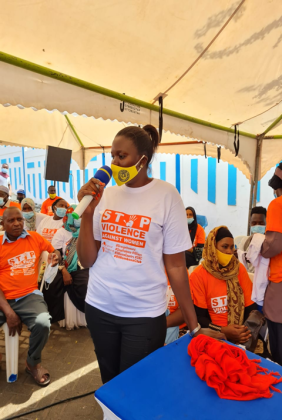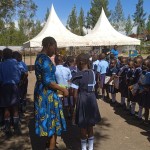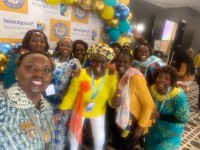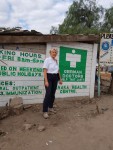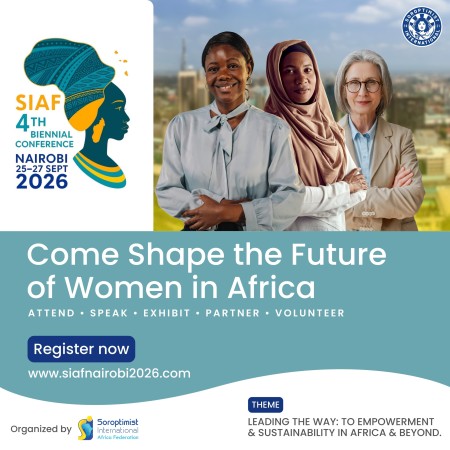In the wake of Covid-19 pandemic, the government of Kenya put in place several measure in its bid to contain the spread of the virus and amongst the measures were the closure of all schools and stay at home directives.
With these containment measures, tension arose within homes leading to a drastic increase of Gender Based Violence (GBV), mental health issues and teenage pregnancies.
According to the report by National Crime Research Centre (NCRC), its Report on Protecting the Family in the time of Covid-19 Pandemic; Addressing the escalating cases of Gender-Based Violence, girl child disempowerment and violation of child rights in Kenya, conducted in the period between January and June 2020, 71% of the 2416 Gender-based violence recorded cases during that period were perpetrated against women and girls. The main perpetrators being males aged between 18-33 years old. The main offences noted include defilement, attempted rape, rape, subjecting children to torture, attempted defilement, gang rape and gang defilement.
The containment measures that have been put in place by the government in curbing the spread of the virus, though done in good faith, have greatly contributed to the increase in GBV especially the lockdown directives that rendered only essential services provider institutions accessible.
According to an insight written by UN Trust Fund to End Violence against Women titled, “Impact of Covid-19 on Violence against Women and Girls: Through the Lens of Civil Society and Women Rights Organizations”, it is noted that not only has GBV rapidly increased over past months but the pandemic has been a catalyst that has threatened deranged the efforts that were put in place in aiding the fight against GBV. The effects of the pandemic in relation to the fight against GBV were noted to include but not limited to; Lack of access to community support systems within a lockdown situation; women in small businesses are experiencing greater dependence on their perpetrators and an increased likelihood of violence; Shelters and centers for psychosocial support are stretched or closed; Inadequate access to essential medical needs, sexual and reproductive health services ; Lack of access to essential services such as justice, health care and social protection for victims and survivors puts them at considerable risk; Due to the lockdown most victims fear reporting their perpetrators who they live with and also in normal situations, the neighbors have always been helpful in mitigating GBV whenever they occur but that has also been hampered by the lockdown and curfew directives.
It is worth noting that one of most adverse effects of the pandemic on young and adolescent girls as a consequent of the school closures directive is that within a lockdown situation girls are more vulnerable to sexual exploitation, harassment and child marriage and children are more likely to be exposed to violence within the household.
The pandemic and ensuing lockdown measures may have put a strain on organization that provide essential services to GBV victims, all is said to have not been lost. In foreseeing the possibility of a spike in unwanted pregnancies cases and a drop in the enrolment in school for young girls when the pandemic subsides, Soroptimist International Club of Mombasa embarked on a mentorship, menstrual hygiene and health campaigns and sensitization forums on the GBV; the objective being to encourage and support women and girls to weather through the Covid-19 pandemic.
Soroptimist International Club of Mombasa is a subsidiary of Soroptimist International Country Club whose aim is to provide a global voice for women through awareness, advocacy and action. The Organization strives to advance status of women, promote human rights for all and foster equality, development and peace.
In fulfilling its mandate, in July 2020, Soroptimist International Club of Mombasa visited the community of Bokini , Mwarakaya area in Vipingo where the participants were sensitized on the negative effects of GBV and urged to promote education for young girls by ensuring they are safeguarded and protected from unwanted pregnancies through the support of Nederland’s Albert Schweitzer Fonds in the Netherlands; the club distributed reusable sanitary pads and foods rations to the over 92 women and girls who attended the forum.
In August 2020 at the Nyali CDF Offices in Kongowea Kisauni, the Club sensitized about 40 women on GBV causes, prevention and its effects and later on supplied dignity packs and food items to cushion them against negative effects of the pandemic.
In October, in celebrating the international day for the girl-child, the Club focused its attention on the need to address the challenges girls face; to promote girl empowerment and the fulfillment of their rights. In partnership with the Voice, CBO, Pure Pearl Foundation, Child Welfare Society Kilifi amongst other partners, the club carried out half a day training for 100 girls in Mwakirunge Mombasa County where the girls were trained on menstrual health and hygiene, sexual GBV and mentorship.
In order to protect the girls from being lured into sex in exchange for sanitary pads, the Club distributed sanitary pads for the 100 girls in attendance.
In November and while commemorating the 16 days of activism against GBV , the Club in partnership with the Kenya Ferry Services, Law Query and Onyango Onunga Advocates held a two days sensitization forum on GBV and free legal aid to Kenya Ferry Services users. The two- days forum targeted the vulnerable women and men crossing the Kenya ferry. The Club went ahead and distributed reusable pads to the attendees.
The Club recognizes the efforts made by the government and stakeholders in the fight against GBV but emphasizes on the need for multi-sectoral approach, engagementand collaborators in the fight against GBV during the pandemic.
Article by:Jane A. Onyango
Programme/Advocacy Director
Soroptimist International Club of Mombasa

